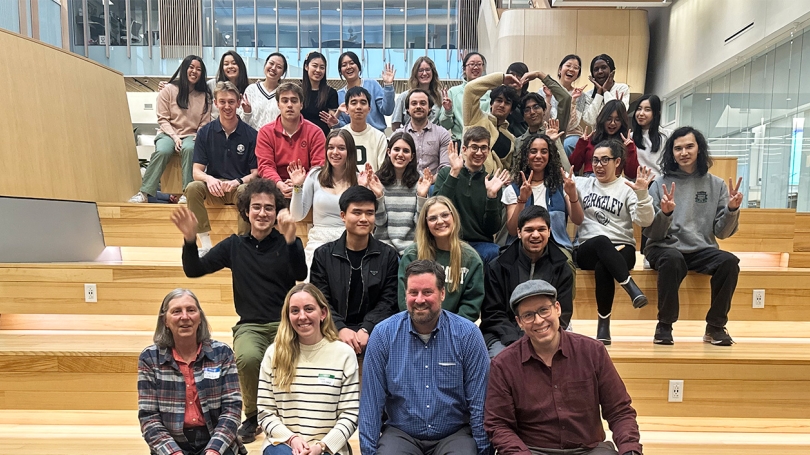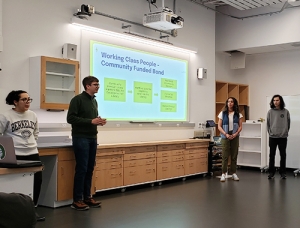

How can rural communities in the Northeast reach ambitious net zero goals by 2030? How can institutions like Dartmouth engage diverse stakeholders to address Scope 3 emissions challenges?
These were some of the complex issues that 25 students tackled at this year's EnergyHack, hosted by Dartmouth Energy Alliance (DEA) and The Arthur L. Irving Institute for Energy and Society on April 11-12, 2025. Students developed bold solutions involving community solar projects, geothermal systems, and aggregated Power Purchase Agreements.
The EnergyHack is an annual student-led event fostering innovative solutions to significant challenges. With the impacts of climate change being felt with increasing scale and intensity, hackathons like these harness the creativity of young minds to address complex energy and climate issues.
"The EnergyHack is a great chance to learn by doing. If some great ideas come out of it, and if students become inspired to dive deeper into the issues, those kinds of local wins help move global sustainability forward." — Matthew Timofeev '25, DEA student organizer

In the Northeast, where rural areas struggle with aging infrastructure and limited access to renewable resources, exploring pathways to net zero by 2030 is crucial for sustainable development. The EnergyHack engages students directly with real-world sustainability challenges in a collaborative atmosphere that bridges academic insights with practical applications.
"They debated whether public benefit corporation or nonprofit models would better align with their missions, and mapped systems to propose creative funding sources for new programs," shared EnergyHack judge Anna Whitney '20, Manager of Strategic Advisory Services at Sustainability Roundtable, Inc. "The first-place team presented a pilot project to empower Hartford [VT] residents with data and tools to make energy-efficient home upgrades. Other teams thoughtfully proposed market-based instruments like shadow carbon pricing and envisioned small modular reactors tailored to local needs."
Students exercise technical skills and lean into their growing appreciation of the importance of collaboration, policy considerations, and socio-economic impacts. By bringing together a multidisciplinary team of judges and organizers, including alumni and sustainability experts, the event highlights the collective effort required to drive meaningful progress toward a sustainable future.
The DEA and the Irving Institute extend our heartfelt thanks to an outstanding team of judges: Dana Clawson; Alejandro Juárez Crawford Tuck '03; Kim Quirk '82, Thayer '83; and Anna Whitney '20; to Rosi Kerr, Director of Sustainability, for her keynote welcome. And the Institute congratulates the DEA student organizers: Matthew Timofeev '25, Pranav Kanmadikar '25, Carly Walter-Porino '25, Jack Marino '27, and FT Chiu '26 on another Hack with impact!